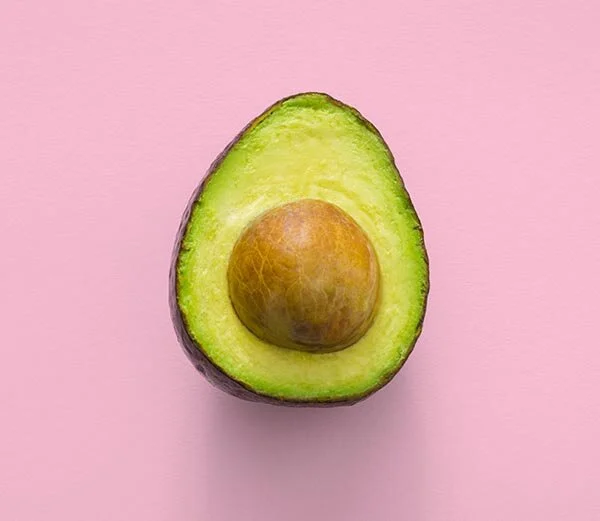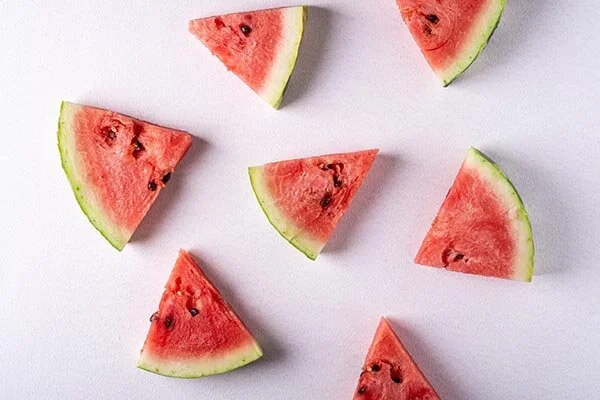20 Foods That Protect You From the Sun
It’s not just what you put on your body, but also what you put in your body that can prevent sun damage, premature aging, and skin cancers.
By Jessie Schiewe
Credit: Flickr
If sunscreen has ever felt like a chore to put on, you may have fantasized about an easier, quicker way to apply it. Others have had this same thought.
In fact, around 2012, a Colorado company called Osmosis Skincare unveiled what they hoped would be the antidote to laborious sunscreen applications: drinkable SPF.
The vitamin-packed water simply needed to be ingested in order for it to work. The equivalent of rubbing SPF 30 on one’s skin, the company claimed the drink contained a “form of radio frequencies called scalar waves” that “vibrate above the skin to neutralize UVA and UVB,” essentially providing an internal buffer against the sun’s harmful rays.
But some have taken umbrage with Osmosis Skincare’s newfangled product, believing it to promise more than it delivers. The Iowa Office of the Attorney General filed a consumer fraud lawsuit against the company in 2017, accusing them of manufacturing a “seriously flawed” and “flat-out dangerous” product “without any proof” that it actually protects skin from UV radiation.
The case was eventually settled and the company changed its name to UV Defense. You can still buy the drinkable sunscreen today, although it’s now called “Sun Defense Bronzing Elixir.” The bottle instructions are equally vague, with no mention of actually “drinking” the solution, just the directive to “take pumps.” Customers, however, seem to know how to use it, with one Amazon buyer calling it “easy, tasteless, voodoo water.”
If drinking your sunscreen sounds too weird, what about eating it? It turns out that certain foods can protect you from sun damage and skin cancer if you eat enough of them. What’s more, these foods are easy to find and fairly commonplace at most grocery stores. In fact, you probably already consume many of them.
They tend to be packed with antioxidants, vitamins, and nutrients that buttress the skin against UV rays and also help prevent wrinkles, sun damage, and future cancerous growths.
Of course, eating these foods alone won’t fully keep you out of harm’s way. You should also use a broad-spectrum sunscreen so that your body is protected from the sun inside and out.
Still, considering that most of us probably have at least some of these ingredients in our kitchens already, it’s worth giving them a look.
Here are 20 common foods that are basically like nature’s sunscreen.
Avocado
While rubbing avocado on your skin helps remove dead skin cells, unclog pores, and moisturize it, eating it also has some impressive benefits. The green fruit is packed with vitamin E, which can prevent photodamage to the skin. What is photodamage? It’s changes to the skin caused by prolonged sun exposure that typically manifests as wrinkles, roughness, freckles, or darker pigmentations.
Coffee
Coffee has a number of benefits that far outweigh its immediate benefit as an energy supplement. For instance, did you know that drinking coffee can lower your risk for developing Alzheimer’s or dementia? Or that it can reduce your chances of getting Type 2 diabetes?
When it comes to sun protection, it has another positive impact on the body. Coffee contains polyphenols: micronutrients found in plant-based foods that, due to their high antioxidant levels, help protect the skin from sun damage and skin cancer.
Drinking it can also reduce your chances of developing malignant melanoma, with one study showing that people who drink four or more cups of coffee a day have a 20% lower risk.
Tofu
Not just a great, protein-rich alternative to meat, tofu is also a key way to protect your skin from sun damage thanks to its high concentrations of isoflavones.
These compounds are known for improving skin thickness and elevating skin concentrations of collagen and elastic fibers, both of which may protect against UV radiation.
Cherries, grapes, strawberries, raspberries, pomegranates
These fruits all contain antioxidant-rich polyphenols, which have been shown to guard against UV radiation, as well as lower risks for certain cancers, heart diseases, diabetes, osteoporosis, and neurodegenerative diseases.
Strawberries, cherries, raspberries, and pomegranates contain the antioxidant ellagic acid, which has been shown to remove toxins from the body and protect against harmful molecules known as free radicals.
Grapes, as well as raspberries and blueberries, contain resveratrol, an antioxidant that can inhibit the growth of cancerous tumors, which are often a byproduct of overexposure to the sun.
Red wine
Here’s your permission to get sloshed on vino, as the flavonoid-rich beverage can protect against UV radiation and skin damage.
Flavonoids have also been shown to promote antiallergic, anti-carcinogenic, anti-viral, and anti-inflammatory activity.
Oatmeal
This breakfast staple and popular beauty ingredient contains antioxidants that fight free radicals and, in turn, prevent cellular damage. Known for its anti-aging effects, oatmeal has also been shown to help with skin regeneration after overexposure to UV radiation.
Tomatoes
Want to really make sure you don’t get sunburned or turn red after being outdoors? Eat tomatoes.
The vegetables are high in lycopene, which studies have shown shields against erythema, or skin reddening, caused by too much UV exposure. Plus, the vitamin C in tomatoes also acts as an extra hydration boost.
Dark chocolate
The darker the chocolate, the better it is for your skin. This is because dark chocolate contains higher concentration of flavanols, which work by eliminating skin damaging compounds, such as free radicals and metallic ions, from your body.
The next time you’re hankering for something sweet, look for chocolate that has 70% cocoa or higher.
Red peppers and sweet potatoes
If you’ve never had a preference between green, yellow, or red bell peppers, science has spoken on your behalf: Get the red ones.
Along with sweet potatoes, red peppers contain high levels of beta-carotene, a plant pigment and precursor to vitamin A that has been shown to protect against sunburns.
Nuts and seeds
Almonds and sunflower seeds are packed with vitamin E, which not only moisturizes the skin, but also fends off free radicals and protects against UV-damage induced tumors.
Also an efficient anti-inflammatory, our body’s vitamin E levels decline as we age, making the consumption of foods that contain it even more vital.
Fatty fish
Fatty fish, such as salmon, sardines, herring, and trout, are rich in heart-healthy omega-3 fatty acids which can make sunburns less severe and may prevent the development of skin cancer. Omega-3s work by boosting the skin’s immunity to sunlight, which aids the body in its ability to fight skin cancers.
Olive oil
Olive oil contains squalene, a beloved anti-aging compound in beauty products that can also protect the skin from sun damage. The compound’s antioxidant powers prevent skin cell death due to sun exposure, which, when untreated, can be a first step to developing skin cancers.
Watermelon
Like tomatoes, watermelon contains ample amounts of lycopene, which can ward off sun-induced skin redness. The fruit is also rich in vitamin C, which has been linked to protection against both UVA and UVB damage.
Carrots
A trifecta against UV damage, carrots contain beta-carotene, lycopene, and vitamin C. All three of these potent nutrients have demonstrated an ability to defend against the most common side effects of sun exposure, including skin cancer, photodamage, and premature aging.
Green tea
Green tea is full of protective polyphenols that can safeguard the skin against sun damage. Top on the list is epigallocatechin gallate (or EGCG), a unique plant compound known for its ability to reduce inflammation, aid in weight loss, prevent heart and brain disease, and protect against UV radiation.



























